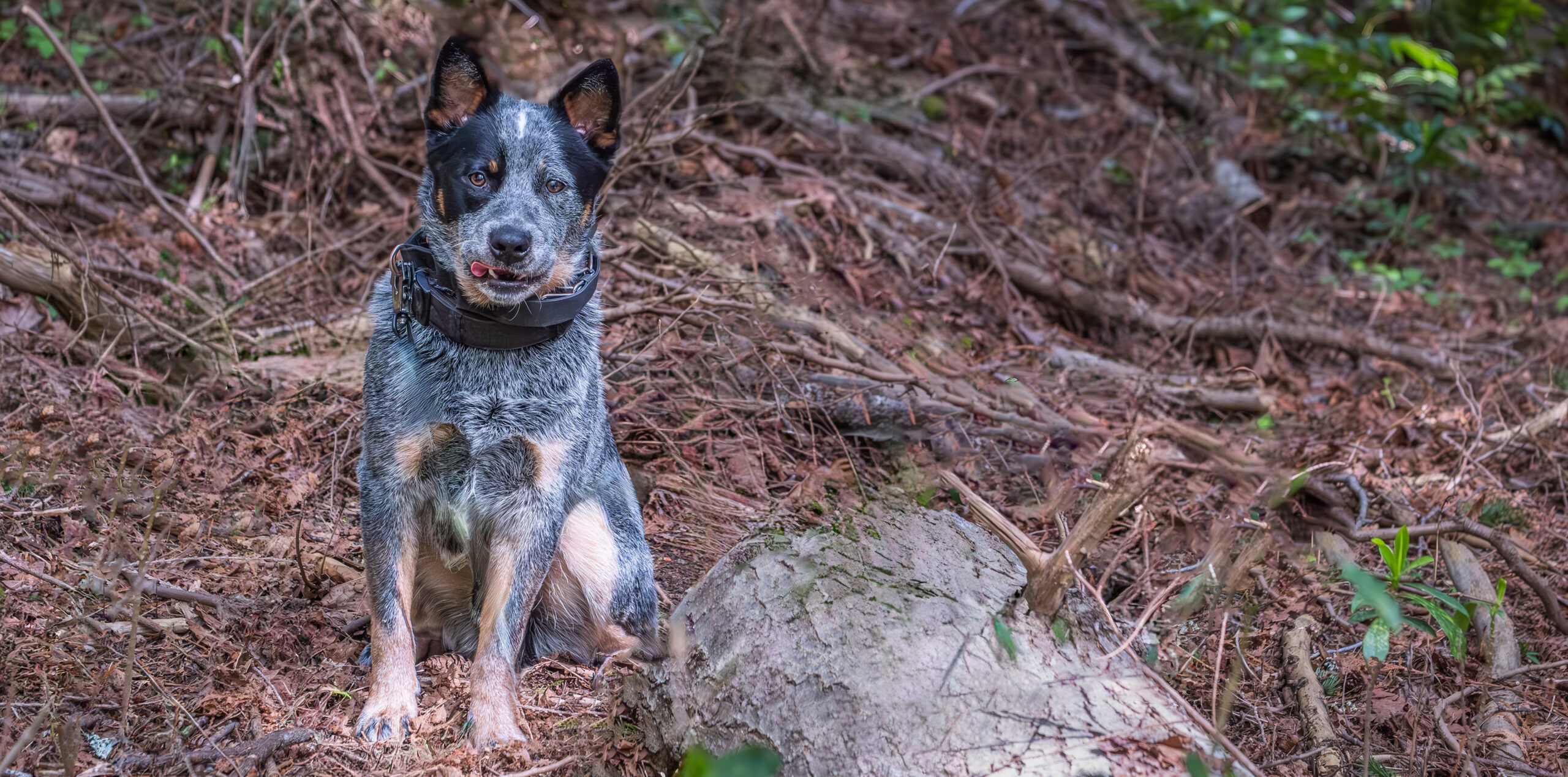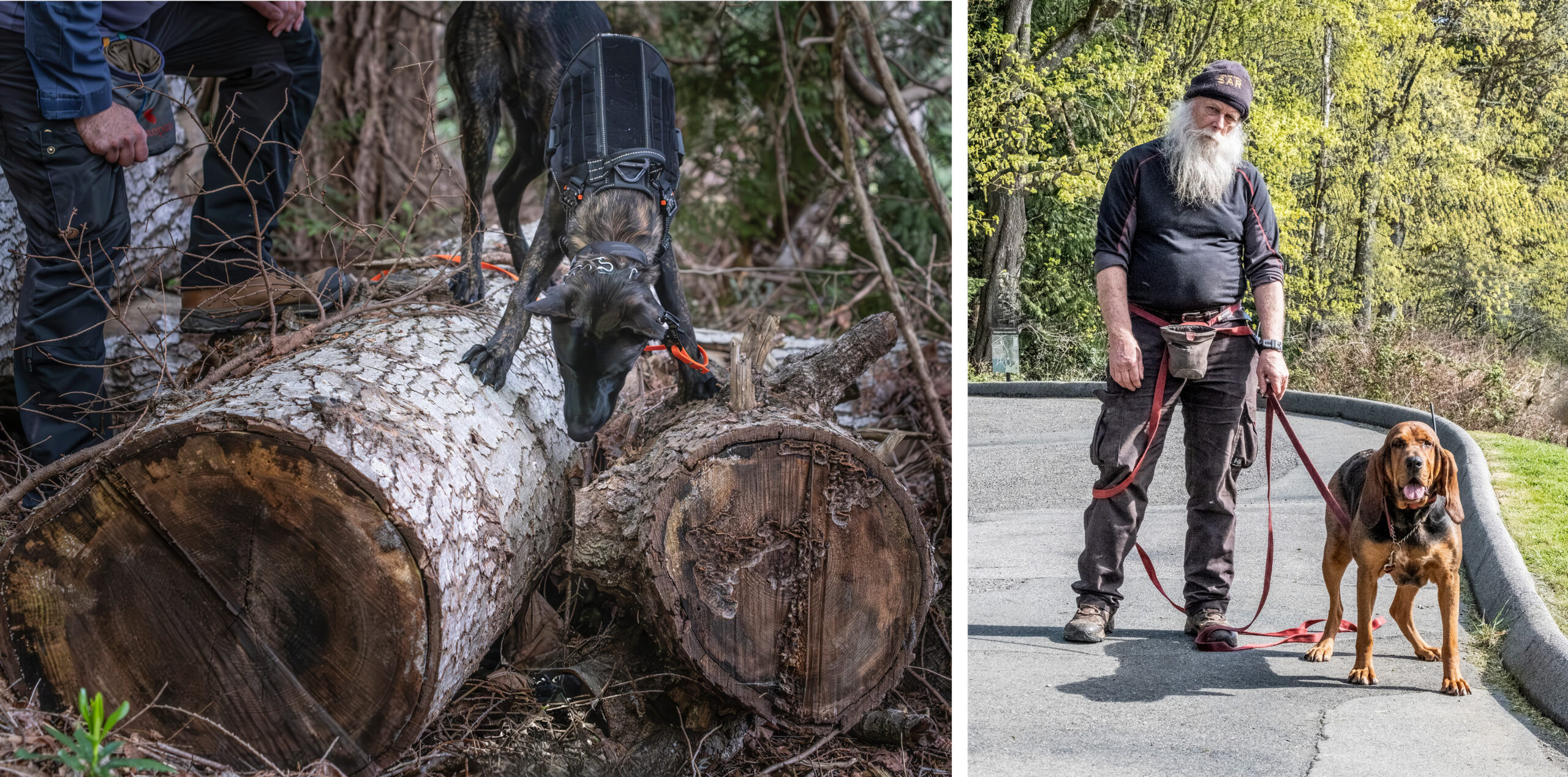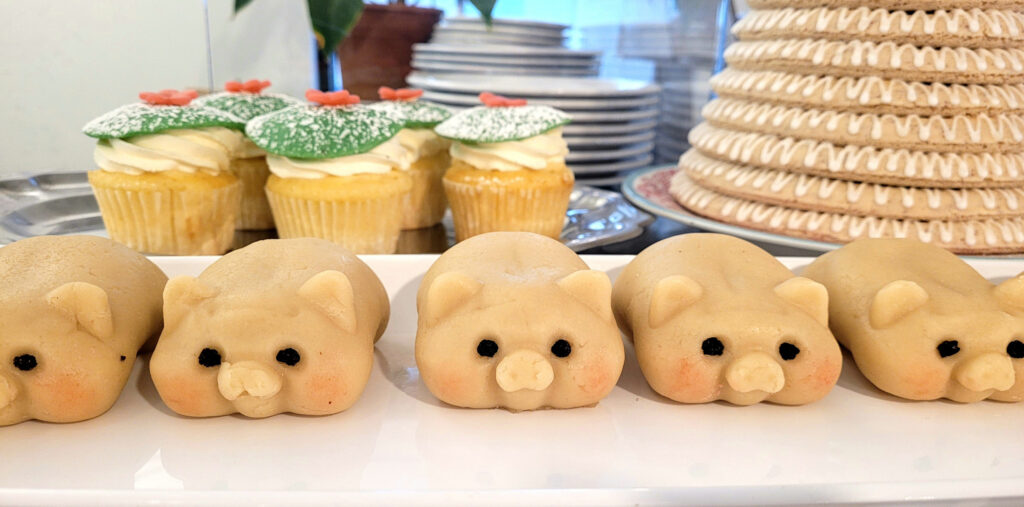by Jamila Douhaibi –
The number of shows on crime scene investigation, cold cases and uncovering disappearances make up for a great deal of television and streaming. It’s rare that a story doesn’t end with whodunnit and how. But, in real life, sometimes the most that can be done is to make sure that families are reunited with the bodies of their loved ones.
Jason McMillan joined the Canadian Cadaver Canines (CCC) non-profit organization over two-and-a-half years ago and says that their goal is to provide closure for individuals and families; they do this by assisting in the “recovery of presumed deceased individuals in an effort to help families and communities find answers about their loved ones.” After someone has gone missing, search and rescue is immediately deployed to find individuals, but when they aren’t successful, the CCC team’s trained crew are dispatched to find the body.
Doctors, paramedics, social workers and mechanics are some of the professions that make up the completely volunteer-run CCC team, which Jason says requires extensive training and examinations. Volunteers become canine handlers, field techs or both; the field techs work with GPS, maps and help ensure that the handler is safe throughout the search. Canine handlers go through a two-year process of training with their dog in order to work in the field. Though the organization works throughout the province, many of the team members live and train on the Saanich Peninsula.
Jason got involved in CCC when he wanted to give his energetic Plott hound puppy Olivia a new challenge. Olivia was going through Jason’s training quickly, so he took her to Pet-A-Palooza where the CCC team was showing off their dogs’ skills. Jason says: “I went to the intake with my little pup and haven’t looked back.” Though the group is not breed specific, not all dogs make it through the rigorous training. Due to health issues, Olivia didn’t make the team, but Jason’s dedication hasn’t wavered. He is now training a Dutch shepherd named Osiris. There are currently four active dogs on the team and seven more being trained.
Outside of the intense toll that this kind of work requires, the biggest challenge is the patience and time it takes to train the dogs. Jason says that it’s about 15 to 20 hours of training a week for the two years, and the struggle is that it often feels like “one week you got it, the next week you don’t.” But even with this time commitment, Jason echoes the feelings of the other trainers, saying he absolutely loves it. Each Friday night at 6 p.m. they meet up to walk for over an hour working on focused leash challenges. Because of the care put into their pets, Jason says they are “forever protective of the dogs and how they interact with other dogs,” often not taking them to off-leash dog parks where there is too much of an unknown.
Once dogs and handlers are trained, they wait for the call to action. When requests come in, teams of about three check their availability and the weather patterns in the area they are heading to. There needs to be a certain amount of wind and humidity for the dogs to track cadavers. Part of the dogs’ training is to distinguish between human and animal scents, whether it’s bodies or bones. The organization works on cold cases up to 30 years old, so dogs need to be prepared for a number of scenarios. Jason says that they are there to “help people who have not had the ability to come home,” but that even if they don’t find the individual, there is at least another area that has been searched, which can aid in providing some closure.
Losing a loved one and not knowing where they are is unimaginable for many, but the work that the volunteers at Canadian Cadaver Canines are doing is extraordinary. During such a serious crisis, this organization not only steps in to help, but also doesn’t leave a bill behind when they leave. Helping families during their time of need is what this dedicated group, and their dogs, train to do.
To find out more about their great work visit: www.canadiancadavercanines.ca. They can also be found at the annual Pet-A-Palooza, where the people don their gear and the dogs show off their skills. Look out for upcoming garage sales, bottle drives and other fundraisers to support their work.
Photos by Tanya Murchie. Above: Ian Taylor with bloodhound Marina.





